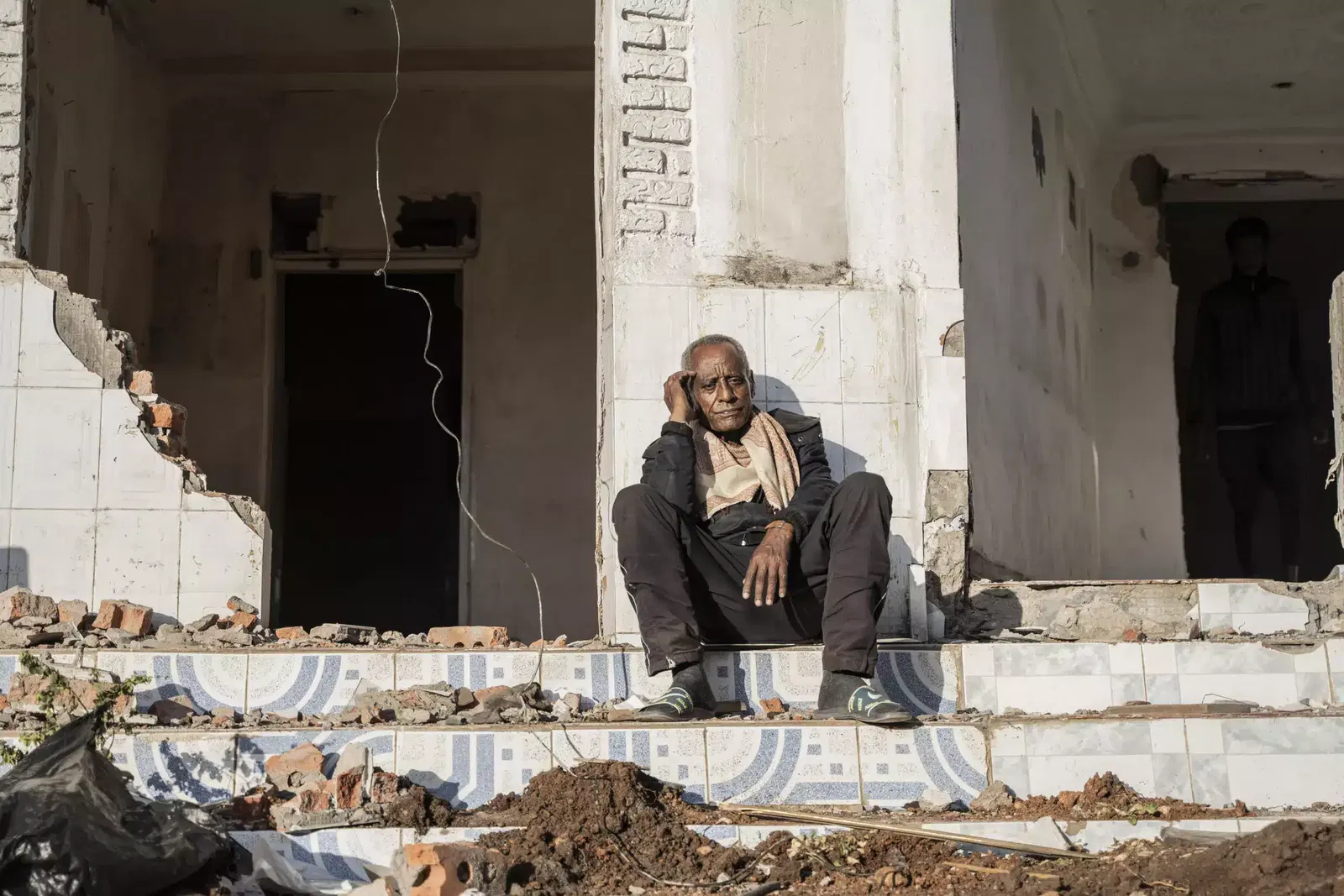
BY MESFIN TEGENU
Lately, there has been a growing focus from the international community on the situation in Ethiopia and the government in Addis Ababa due to the escalating civil war, infringements on the rights of journalists and political dissidents, and the looming threat of famine in the northern region, alongside a worsening debt crisis. The heightened attention from around the world should have ensured the safety of Bate Urgessa, yet it seems that the authorities are indifferent to his well-being.
In April, Urgessa, a 41-year-old senior official of an opposition group in Ethiopia, was discovered dead. His body had been shot and left on the side of the road in Meki, his hometown. His relatives suspect that Urgessa, who had been imprisoned by the government multiple times, was forcibly taken from a hotel room by soldiers loyal to the regime. The government has refuted any allegations of involvement.
U.S. officials, including those in the State Department, have emphasized the importance of a thorough and unhindered inquiry into the murder. However, to their dismay, the investigation initiated by the Ethiopian Human Rights Commission was abruptly halted, at least temporarily, earlier this month. This interruption was reportedly due to government interference and the disappearance of potential witnesses.
The unresolved nature of this murder highlights the urgent need for investigative journalism. Regrettably, Prime Minister Abiy Ahmad’s government has taken a concerning stance by imprisoning eight journalists who were reporting on the country’s civil conflicts in 2023. Among them is Meskerem Abera, the founder of Ethio Nikat media. This distressing development has resulted in Ethiopia having the second-highest number of incarcerated journalists in sub-Saharan Africa, as reported by the Committee to Protect Journalists.
Ethiopia is currently facing a crisis, but this is not an isolated issue in the Horn of Africa region. Sudan is dealing with conflicts between government and paramilitary forces, resulting in millions of refugees. Somalia is experiencing pre-election violence, worsening its humanitarian situation. Yemen has become a failed state due to years of warfare.
In Ethiopia, the government’s escalation of violence has led to a state of emergency in the Amhara region for over 10 months, affecting more than 50 million people. The regime’s extrajudicial killings are claiming the lives of innocent women and children daily.
It is crucial for the U.S. government to prioritize this situation, considering its longstanding alliance with Ethiopia. Instability in Ethiopia could have ripple effects throughout the Horn of Africa, causing a humanitarian crisis with dire consequences for civilians affected by war, worsening famine, and enabling the spread of terrorism.
The Biden administration and the U.S. Congress have a unique opportunity to utilize both the incentives of much-needed assistance – financial support and an International Monetary Fund rescue plan sought by the financially strained Abiy regime – and the enforcement of hearings on Capitol Hill and potential sanctions against leaders accused of human rights violations. These measures can play a crucial role in guiding Ethiopia towards peace and stability.
However, time is of utmost importance. In recent months, government forces have engaged in escalating military actions against civilians in the Amhara and Oromia regions. These actions have resulted in the loss of civilian lives through drone strikes, door-to-door raids, and widely publicized village massacres.
The military strikes conducted by the Abiy regime have not only caused harm to churches and other ancient world heritage sites but have also destroyed granaries that provide sustenance to local communities. Disturbingly, it has been reported that at least 400 individuals in Amhara and Tigray have died from starvation, and experts warn that millions are at risk of experiencing a severe famine, reminiscent of the crises witnessed in the 1980s.
Years of internal conflict have taken a toll on Ethiopia’s finances, as has corruption. Despite defaulting on national debt payments, the government is still spending significant amounts of money — estimated at $15 billion or more — on a luxurious residence for the prime minister.
Additionally, the current administration is focusing on questionable urban development projects, such as the demolition of the historic Piassa neighborhood in Addis Ababa, with support from the United Arab Emirates.
This situation is unfolding within a larger context of competition for influence in Africa, particularly between the U.S. and China. While China’s growing presence and expertise in infrastructure development have garnered attention, experts like Thomas P. Sheehy from the United States Institute of Peace emphasize that the U.S. should not underestimate its own strengths, including in areas like healthcare, technology, and energy.
The strong connection between the United States and Africa, including Ethiopia, lies in a mutual respect for democracy and the importance of upholding basic human rights, as well as embracing religious and ethnic diversity. Many in Africa view the U.S. as a symbol of these values, contrasting it favorably with authoritarian regimes in countries like China and the UAE.
During the current turmoil, the government in Addis Ababa has resorted to divisive tactics to maintain power in a nation with a rich history of unity and resistance against colonialism. In the past, U.S. policymakers erred by involving themselves in Ethiopia’s internal conflicts based on ethnicity, instead of promoting governance that ensures equal rights for all, regardless of background.
In the upcoming weeks, the Biden administration has the opportunity to fulfill its initial commitments by establishing new partnerships based on mutual respect between the U.S. and Ethiopia. Utilizing its influence, it can link International Monetary Fund assistance and other forms of support to the cessation of ethnocentric civil conflicts and human rights abuses. Furthermore, it can call for the liberation of journalists and other individuals detained for political reasons. Collaborating with reputable religious and humanitarian organizations, efforts can be made to expedite the delivery of food aid to famine-affected regions such as Amhara, Afar, Tigray, and others.
For an extended period, Ethiopian mothers have witnessed their sons being sent to engage in futile civil wars, resulting in tragic losses. This time, the United States must not remain passive. Ethiopia requires the support of the U.S. to establish itself as a stronghold for democracy in a region facing numerous challenges.
Mesfin Tegenu serves as the executive chairman of the American Ethiopian Public Affairs Committee.



ወንድም መስፍን፦
አንተም፣ እንደ ብዙ ልሂቃን፣ ራሳችን ለፈጠርነው ምስቅልቅል የአሜሪካን መፍትሔ እየሻትህ ነው። ዘመኑ የቆየ ነው እንጂ፣ ልጅ ያቦካው ለራት አይበቃም የተባለው የአባቶች ብሂል ደረሰብንና ለሌሎች መትረፍ ስንችል ዛሬ እኛ በመዳህ ላይ ነን። ችግራችንን መፍታት ያለብን በፈረንጅ ድጋፍ ሳይሆን ባንተና በሌሎች ወገኖቻችን የተባበረ ጥረት መሆን አለበት ።
If the American Imperialism is behind the war and supports Abiy Ahmad to destroy the Amharas, what kind role can it play. My friend you must mentally sick when you write such an article. You cannot understand what is going in this world. In every Major war what is going in this world the Anerican Imperialism is the main actor.
Fekadu